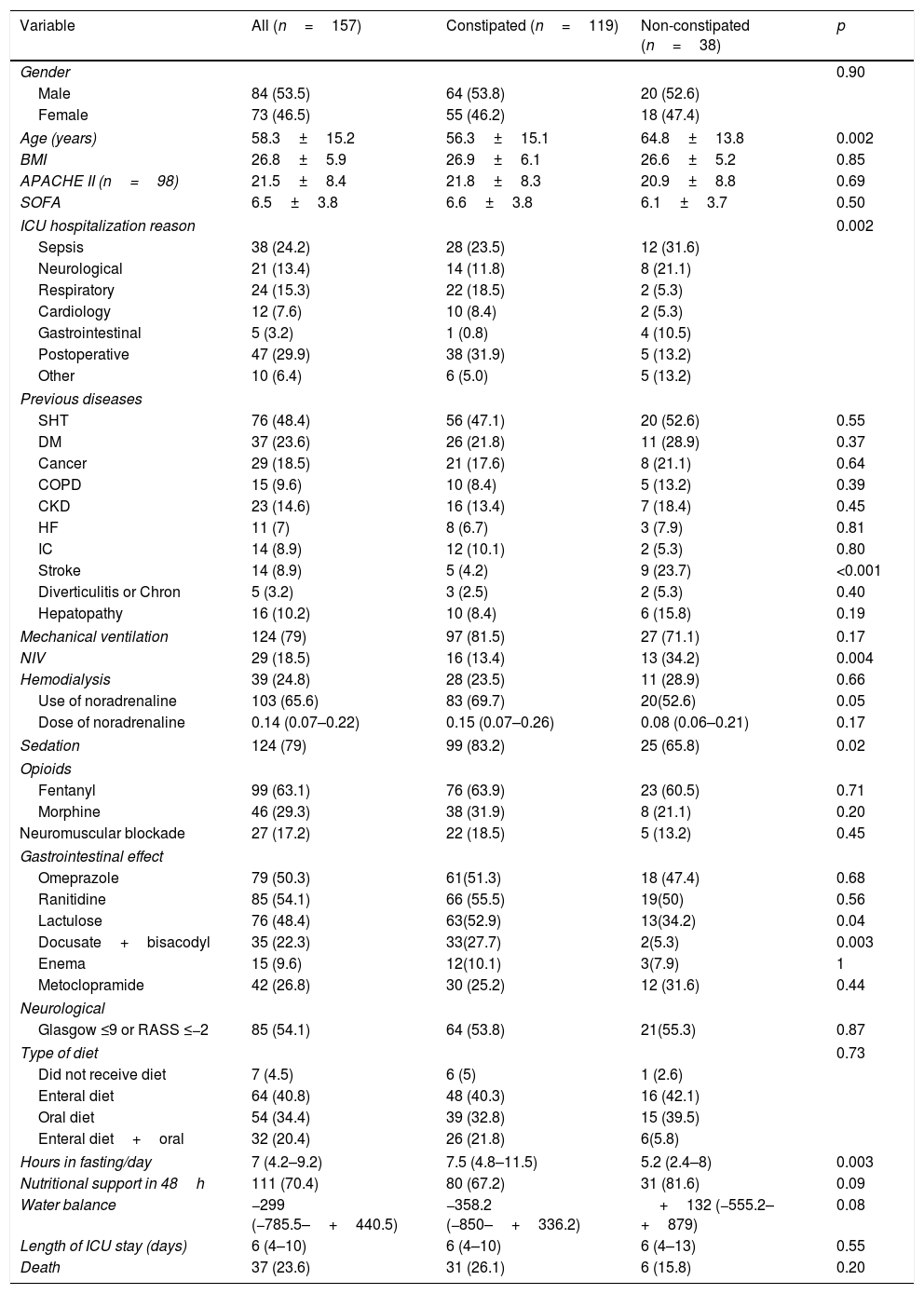To assess the incidence and factors associated with constipation in adult critical care patients.
DesignProspective cohort study.
Settingintensive care unit (ICU) of a high-complexity hospital from November 2015 to October 2016.
Patientsadults who were hospitalized for at least 72h in the ICU were followed from their admission to the ICU until their departure.
InterventionsNone.
Measurements and main resultsIn the 157 patients followed up, the incidence of constipation was 75.8%. The univariate analysis showed that constipated patients were younger, used more sedation and showed more respiratory and postoperative causes for hospitalization, while non-constipated patients were hospitalized more for gastrointestinal reasons. The use of vasoactive substances, mechanical ventilation and haemodialysis was similar between the constipated and non-constipated patients. Multivariate analysis, days of use of docusate+bisacodyl (HR: .79; 95% CI: .65–.96) of omeprazole or ranitidine (HR: .80; 95%CI: .73–.88) and lactulose (HR: .87; 95%CI: .76–.99) were independent protection factors for constipation.
ConclusionConstipation has a high incidence among adult critical care patients. Days of drug use acting on the digestive tract (lactulose, docusate+bisacodyl and omeprazole and/or ranitidine) are able to prevent this outcome.
Valorar la incidencia y factores de riesgo asociados al estreñimiento en pacientes adultos, en estado crítico.
DiseñoEstudio prospectivo de cohortes.
ÁmbitoUnidad de cuidados intensivos (UCI) de un hospital de alta complejidad de noviembre de 2015 a octubre de 2016.
SujetosSe realizó un seguimiento a los adultos que fueron hospitalizados durante al menos 72h en la UCI, desde su ingreso en dicha unidad hasta su salida.
IntervencionesNinguna.
Mediciones y resultados principalesEn los 157 pacientes seguidos, la incidencia de estreñimiento fue del 75,8%. El análisis univariado mostró que los pacientes con estreñimiento eran más jóvenes, habían usado más sedación y habían tenido más problemas respiratorios y posoperatorios como causas de hospitalización. Los pacientes sin estreñimiento habían sido hospitalizados más veces debido a motivos gastrointestinales. El uso de fármacos vasoactivos, la ventilación mecánica y la hemodiálisis fue similar entre los pacientes con estreñimiento y aquellos sin estreñimiento. El análisis multivariado, los días de administración de docusato+bisacodilo (HR0,79; IC95%: 0,65–0,96), de omeprazol o ranitidina (HR: 0,80; IC95%: 0,73–0,88) y de lactulosa (HR: 0,87; IC95%: 0,76–0,99) fueron factores independientes de protección para el estreñimiento.
ConclusiónEl estreñimiento es muy incidente en los adultos críticos. Los días de administración de fármacos que actúan sobre el tracto digestivo (Lactulosa, docusato+bisacodil y omeprazol y/o ranitidina) son capaces de prevenir este desenlace.










